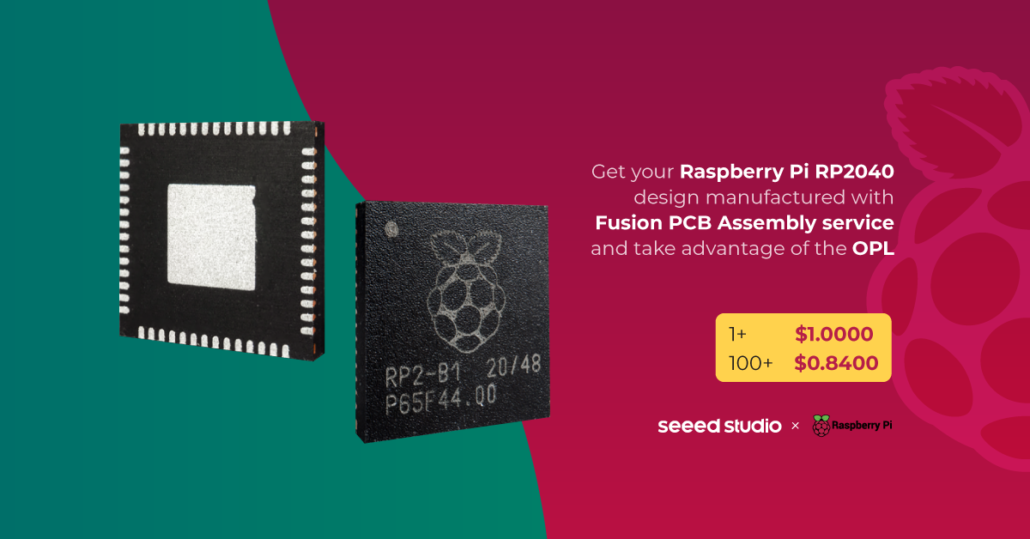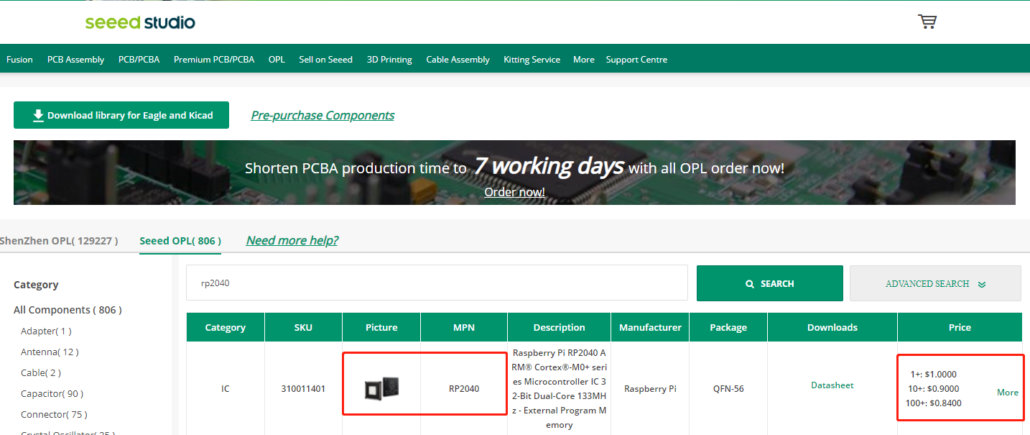Three alternatives to ATMEGA-328P-AU Microcontroller to Bypass The Chip Crisis
According to a Quiksol report, demand for Microchip MCUs has been strong since January 2022, with popular models such as ATMEGA328P-AU experiencing huge price increases by re-sellers. This in part is due to Microchip’s current limited production capacity, resulting in prolonged product delivery. Currently, the delivery time for some Microchip devices have been extended to more than 52 weeks.
Hence, in view of the current ATMEGA328P-AU supply shortage and inflated prices, what are the alternatives? Keep reading to find out.

What is an ATMEGA328P-AU microcontroller?
ATMEGA328P-AU is in the family of picoPower® 8-bit AVR® RISC-based microcontrollers by Microchip. It has 32KB of ISP flash memory with read-while-write capabilities, 1024B EEPROM, 2KB SRAM, 23 general purpose I/O lines, 32 general purpose working registers, three flexible timer/counters with compare modes. It has a programmable watchdog timer with internal oscillator, and five software selectable power saving modes. The device operates between 1.8-5.5 volts.
Popularized by the maker movement, ATMEGA328P is found on the pilot Arduino UNO board and many other Atmega microcontrollers support the Arduino platform. It is suitable for projects and autonomous systems where a simple, low-powered, low-cost microcontroller is needed including Industrial control systems, SMPS and Power Regulation systems.
Needless to say, the increasing demand for ATMEGA328P microcontrollers has shown its popularity! Thus, we’ve compiled a list of alternatives to cater to all your project needs and bypass the supply shortage. Don’t fret, we will continue to update this list as we go along, and we hope you’ll be able to find one that satisfies your taste.
Backwards-Compatible, improved replacement for the popular ATMEGA328P-AU
As can be seen from the table, the ATMEGA328PB-AU AVR microcontroller also has 32 KB of flash program memory, 2 KB of RAM and the same footprint as ATMEGA328P-AU. The ATMEGA328PB-AU is a backwards-compatible alternative to the popular ATMEGA328P-AU. They have the same performance on AVR core architectures but ATMEGA328PB-AU has 5 extra I/Os. Even more surprising, at the time of writing, ATMEGA328PB-AU is only a third of the price of ATMEGA328P-AU and has much more stable supply than the latter!
ATMEGA328PB features the Atmel QTouch® Peripheral Touch Controller (PTC) and while backwards-compatible, is not a direct drop-in replacement for ATMEGA328P. Please refer to the specific datasheets for more information.
But please note that these prices are for reference only and do not include tax. If your project needs an alternative solution, please feel free to consult us for a further online quotation.
| | | |
| Microchip ATMEGA328P-AU | Microchip ATMEGA328PB-AU | Microchip ATMEGA168-20PU |
| Price @ 1 44.8USD (This price is only available in Seeed OPL) | Price @ 1 26.8 USD (Reference Price) | Price @ 1 5.97 USD (Reference Price) |
| Case/Package TQFP-32 | Case/Package TQFP-32 | Case/Package PDIP-28 |
| Number of Pins 32 | Number of Pins 32 | Number of Pins 28 |
| Core Architecture AVR | Core Architecture AVR | Core Architecture AVR |
| Max Frequency 20 MHz | Max Frequency 20 MHz | Max Frequency 20 MHz |
| Number of I/Os 23 | Number of I/Os 27 | Number of I/Os 23 |
| Interface 2-Wire, I2C, SPI, UART, USART | Interface I2C, SPI, UART, USART | Interface 2-Wire, I2C, SPI, Serial, UART, USART |
| Memory Type FLASH | Memory Type FLASH | Memory Type EEPROM, FLASH |
| Memory Size 32 KB | Memory Size 32 KB | Memory Size 16 KB |
| Peripherals Brown-out Detect/Reset, POR, PWM, WDT | Peripherals Brown-out Detect/Reset, POR, PWM, WDT | Peripherals Brown-out Detect/Reset, POR, PWM, WDT |
Super stability and compatibility – ATMEGA168-20PU
So, what is the difference between ATMEGA328-AU and ATMEGA168-20PU, the second scheme we are going to recommend?
From the above table and the part names, it is obvious that the biggest difference between ATmega328 and ATmega168 microcontrollers is their different FLASH capacities, the former is 32KB while the latter is 16KB. Different packages can also be considered, ATMEGA168-20PU in the table is a 28-pin through-hole DIP package as found on the Arduino UNO, which is suitable where size and scaling for mass production are not important factors. As a result, ATMEGA168-20PU can be obtained relatively cheaply in the current market.
In summary, the microcontrollers of the ATMEGA series are available in many packages and configurations but the assembly instructions and support are basically the same. With some modifications, one can quickly utilize a substitute at a better price and availability.
Arduino IDE – Compatible Microcontrollers
As mentioned at the beginning of this article, Atmega328P-AU supports Arduino IDE and has mature support and resources. If you also have an Arduino-based project you may have heard that ATSAMD21G18 supports Arduino IDE and Seeed’s popular self-developed module Seeeduino Xiao uses this microcontroller. However, availability of this MCU is also unstable and is currently facing shortages.
Another candidate to consider when starting a new project is the RP2040 microcontroller by the Raspberry Pi foundation. RP2040 also supports the Arduino environment and combines powerful and efficient computing power into a small and inexpensive chip. With dual ARM Cortex-M0+ cores running at 133MHz and 6 independent banks of RAM, RP2040 offers users exceptional power and flexibility. Combined with Tensorflow Lite, RP2040 is ideal for Machine Learning applications. What’s more, RP2040 is in great supply and at a fraction of the cost of ATMEGA328.
Get your Raspberry Pi RP2040 design manufactured with Fusion PCB Assembly Service and take advantage of the OPL

As with all parts in the Seeed Open Parts Library, RP2040 are in stock at Seeed’s facilities so users don’t need to worry about stock and lead times. In addition, RP2040 is available at discounted prices, from as low as $0.84USD each for 100 pieces or more. That’s currently cheaper than Digikey.

If you have an Arduino-based project and require customization, Seeed can help accelerate your product development and cut-down time to launch by utilizing over 12 years of technical expertise, a strategic locale and a strong supply chain!
Furthermore, to further relieve the burden on rising start-ups and small businesses, especially in such challenging times, Seeed Fusion is now offering support tailored to enterprise users.

Get prototyping costs refunded when your product elevates to batch production (100 pieces or above) with Seeed Fusion. And not just one prototyping cycle – as many as it takes (up to 6% the batch order value).
Attention! We’re bringing you free functional testing of 1 piece for every PCBA order. Seeed Fusion functional testing ensures the quality of PCBA products and avoids delays in product release due to rework. Try it out for yourself!